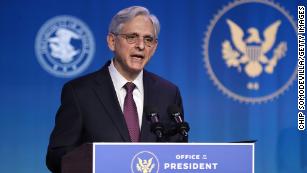UK
The word “truth” is being hijacked by fake news conspiracy theorists who claim their dark ideas are light
There have been too many victims of Covid-19. People for whom coronavirus was the primary cause of death. Many others whose death was accelerated or whose recovery from other diseases was cancelled through catching Covid.
Truth has been a victim too. Conspiracy theorists and populists have been promoting a distorted review of reality. Uncertainty, crisis and threat have always been fertile grounds for conspiracy theories. But has never been so important to get the truth right.
A “truthpaper” is currently been pushed through doors around the country. Truth? Not in my book.
The coronavirus epidemic has been a killer. Two and a half million people have died after being infected with Covid across the world. In the UK, 120,000 people.
There has been wide spectrum of debate on how we should have dealt with the pandemic. That debate is the legitimate way that science and the political process responds to any threat or crisis.
But there has been a smaller but not insignificant challenge from the conspiracy theorists.
For months “The Light” has been pushed through letterboxes in some areas of the country. Styling itself as “A Truthpaper,” it adopts an evangelical religious air. It’s professionally produced and it’s hard to fault the editing and design or paper quality. Independently funded, it boasts a distribution of 125,000.
But the quality of its editorial content, design and production cannot for moment disguise the danger of its content.
The front page headline of the current edition screams “Covid Shots Kill and Injure Hundreds”.
If we take this one article at face value, and I don’t, then hundreds have died after being vaccinated. But when the article was written in January up to 100 million people across the world had had their first vaccination. If vaccination people have been dying in any significant numbers after vaccination it would be on every frontpage of every newspaper in this country. SAGE would be less than sage about it.
Donald Trump didn’t start fake news by a long way. But more than anyone in recent years, he elevated into an art form. Fake news Trump screamed at the media outlets. That was nothing more than a smokescreen for the fake news he was putting out himself. He created alternative truths. Polarised realities. We saw one of the consequences of polarisation with the storming of the Capitol. With the depth of commitment from activists that many of will find frightening.
The human mind has an innate ability to link this bit of information with that bit of information, even if there is no scientific basis for that connection. That, along with an ingrained distrust for “the system” motor conspiracy theories. And conspiracy theories are the life and blood of The Light.
This fake newspaper continues with headlines such as “From Science to Dogma” and “The Covadian Totalitarian Cult” and “Murder of The Innocent”. And then it reveals its roots with attacks on GM crops, 5G, smart technologies and the BBC as the “official mouthpiece for fascist nutters”.
I am not arguing that fake newspapers like this should be banned. That would be illiberal. But I am concerned that they are dangerous. In my home county of Shropshire, they will not sway the majority opinion but they can contribute to the undermining confidence in the local, national and international efforts to bring Covid-19 under control.
We have space in our society for alternative opinions and for challenges to the establishment view. But the challenges need to be rationale not untruths like those pedalled by The Truth.
* Andy Boddington is a Lib Dem councillor in Shropshire, is shortly to receive his state pension. He blogs at andybodders.co.uk. He is Friday editor of Lib Dem Voice.
This entry was posted in Op-eds.









